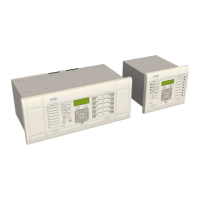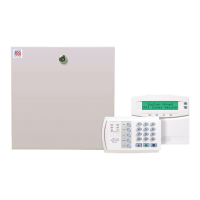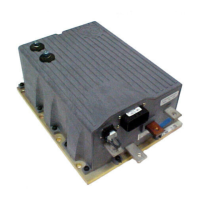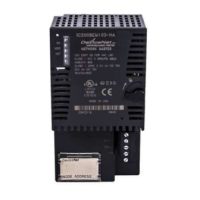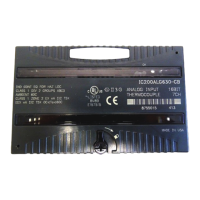Note:
If CONFIGURATION > InterMiCOM64 is set to Enable, the signals normally sent and received by and from the
communications interface are routed to and from the signals defined in the Programmable Scheme Logic. If, however,
COMMISSION TESTS > IM64 Test Mode is set to Enabled, an IM64 test pattern is transmitted instead.
7.2 SETTING UP THE LOOPBACK
Set up a communications loopback for each of the two channels.
Where direct fibre connections are used (or where multiplexer channels conforming to the IEEE C37.94 standard
are used), connect an appropriate fibre-optic cable from the channel transmitter to the channel receiver port on
the rear of the device.
If the communications use P59x interface devices, connect the appropriate optical fibre(s) between the channel
transmitter(s) on the IED used to make connection to the P59x optical receiver(s). Then commission the relevant
P59x devices.
7.3
LOOPBACK TEST
1. Set COMMISSION TESTS > IM64 Test Mode to Enabled, and use COMMISSION TESTS > Test Pattern to set a
bit pattern sent using the InterMiCOM
64
loopback.
2. Check that MEASUREMENTS 4 > IM64 Rx Status matches the test pattern set. The communication statistics
show the number of valid and erroneous messages received.
Note:
The propagation delay measurement is not valid in this mode of operation. The IED responds as if it is connected to a remote
IED. It indicates a loopback alarm which can only be cleared by setting COMMISSION TESTS > Loopback Mode to Disabled.
Note:
In loopback mode the signals sent and received through the protection communications interface continue to be routed to
and from the signals defined in the programmable logic.
Note:
A test pattern can also be sent to the remote end to test the whole InterMiCOM communication path. To do this, set
COMMISSION TESTS >IM64 Test Mode to Enable and connect two ends. Take special care because the test pattern is
executed using PSL at the remote end.
P543i/P545i Chapter 25 - Commissioning Instructions
P54x1i-TM-EN-1 655
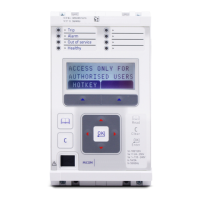
